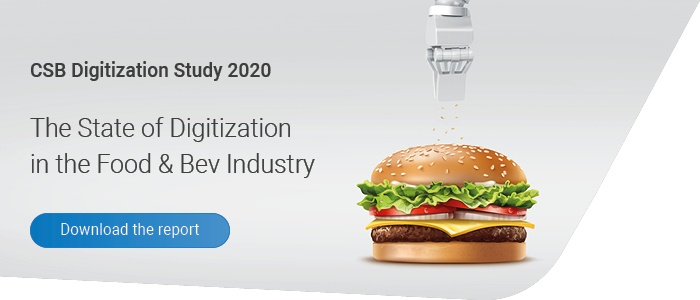The first burger out of the petri dish cost 250,000 Euro – and the excitement was huge when the Dutch professor Mark Post presented it in 2013. In the meantime, the search for the best artificial meat takes place in a gold-rush atmosphere. An overview of one of the most promising markets of the food industry.
Still there has been no breakthrough for artificial meat. If you however believe the numerous start-ups in Silicon Valley, Israel and the Netherlands, this will soon change. Because companies like Impossible Foods and Memphis Meat work on the sustainable protein supply of the future with high pressure. You can roughly distinguish between two tendencies: Cultured meat and meat imitations. The cultured variant is produced in the laboratory. Cell cultures of real animals are isolated, growing further under protected conditions. Imitation signifies that you try to imitate the properties of meat with plant-based raw materials like peas.
Many renowned sponsors
Both manufacturing methods are difficult and lengthy endeavors - and both are massively supported by prominent investors and traditional food companies. A gold-rush atmosphere prevails. In July the Dutch company Mosa Meat collected approximately 7,5 million Euro of investors' funds. One of the investors: The Swiss Bell group. And there are many more examples:
- Google founder Sergey Brin supported the team Mark Post with about 250,000 Euro.
- The People's Republic of China has invested 300 million in the Israeli start-ups: SuperMeat, Future Meat Technologies and Meat the Future.
- The American enterprise Just, formerly Hampton Creek, alone has invested almost 200 million, converted into Euro.
- The start-up Beyond Meat has collected around 60 million. Among the investors are the actor Leonardo Di Caprio and Bill Gates. Since April, the German Meat group PHW, to which belongs the poultry processor Wiesenhof, are sales partner of the company.
- At the beginning of 2018, Wiesenhof invested in the Israeli start-up Supermeats.
- In several financing rounds, Impossible Foods, founded in 2011 has received almost 350 million Euro from investors, among them the Tech-Holding Alphabet (Google) and Bill Gates.
- Memphis Meat is supported by Bill Gates and the British billionaire Richard Branson as well as of industry giants like Cargill and Tyson Foods, the second largest meat group of the world.
.jpg?width=4500&name=Mark_Post_at_the_SingularityU_The_Netherlands_Summit_2016_(29543004992).jpg)
Mark Post conducts research at the University of Maastricht and for his company Mosa Meat. Source: Wikipedia.
Now the pole position is to be secured
Anyone who has read Clayton Christensen's book “The Innovators Dilemma” knows: it is the right strategy to get informed about innovators of the own or a complementary industry early on. The next step is to establish a partner or an alliance with the innovator. Meat producers should not only watch the development, but be right at the top of it, before it really gets going. If you participate/get your foot in a new and economically promising sector, you will snap up an important advantage compared to your competitors.
There seem to be more opportunities than risks for the traditional producers. The processing technology already exists: cutters, smoking units, packaging machines, information technology. All this can also be used in the future, investment hurdles are quite small. “For producers it makes no difference whether they process real primals or their artificially produced equivalent,” says CSB industry expert Thomas Kersten. On the contrary: It will become even easier for them since they will be more independent of the suppliers of the natural raw material meat. It is not only getting more difficult to procure this raw material in the right quantity, but it underlies big fluctuations in quality and yield. “These are problems that will no longer exist for artificial meat”, explains Patrick Pilz, experienced CSB specialist. He supports a customer in the USA who is already right in the middle of the meat revolution. In addition the cultivated meat is better protected against germs and thus easier to handle, says Pilz.
However, not everyone in the value chain gets such good news: There could arise problems in particular for the companies of the procurement market. Slaughterhouses for example and of course cattle breeders.
Superfood and saviors of the climate at the same time
The fact that the artificial meat is not science fiction anymore, but that superfood could become the climate savior, is due to its many positive features. The key benefits at a glance
- If meat is produced in the laboratory or the reactor, no animal has to be slaughtered.
- Artificial meat can help to cover the increasing need of high value protein of the world population. Industrial meat processing will soon reach its limits.
- Some researchers think the artificial meat will be healthier, because its ingredients are strictly examined and protected against contamination with pathogens.
- In addition, it is much better for the climate. Estimates say that production consumes 99 per cent less soil, 90 per cent less water and has a better climatic balance than conventional livestock keeping. “The greenhouse emissions of our process are 90 percent lower than those of traditional livestock farming”, says Memphis Meats founder Uma Valeti. Besides, the problem with antibiotics in groundwater would be solved.
But are we allowed to call this meat?
Nevertheless, there are other opinions. In France for example, a foodstuff may, according to law, only be designated as meat, if an animal has been slaughtered for its production. In the USA, too, a small resistance formed: In May a law was passed in the federal state of Minnesota defining meat as animal product. The law was supported by democrats as well as republicans. The supporters of imitation must come up with something new and give their products different names. This is exactly what claims the United States Cattlemen's Association. For them, the clear marking of artificial meat has “top priority” to avoid confusion of consumers.
Two key questions: How much will it cost and how will it taste?
The key issue will not be ethical, political or legal, but whether consumers will become familiar with the new products. Of course, there is a lot of attention, but consumers change their eating habits slowly. And some trends will not be to everybody's taste. Clemens Tönnies, Europe's number 1 in the meat industry, gave up the production of vegetarian products after a short time. “I don't believe in this market. The hype is definitely over”, said Tönnies after having terminated his veggie adventure in 2017. After all, he called himself a repeat offender, because finally, he tried the sausage twice.“ And both times, I didn't like it at all.”
Whether the artificial meat will be a success story, in the end will be decided by its taste.. If there will be a breakthrough compared to the cost-efficient mass production, the sector could be revolutionized - and it would find its place besides the conventionally manufactured products. When this will be, is the big unknown. Perhaps in 2020, as prognosticates Professor Mark Post for his burger, or perhaps some years later. Maybe we will have a renaissance of the Sunday roast: During the week people eat the cheaper artificial meat and on week-ends, they treat themselves to something special. That is “The real thing”. This may then be even a little bit more expensive.
Picture caption: Mark Post does research at the University of Maastricht and for his company Mosa Meat. Source: Wikipedia.


